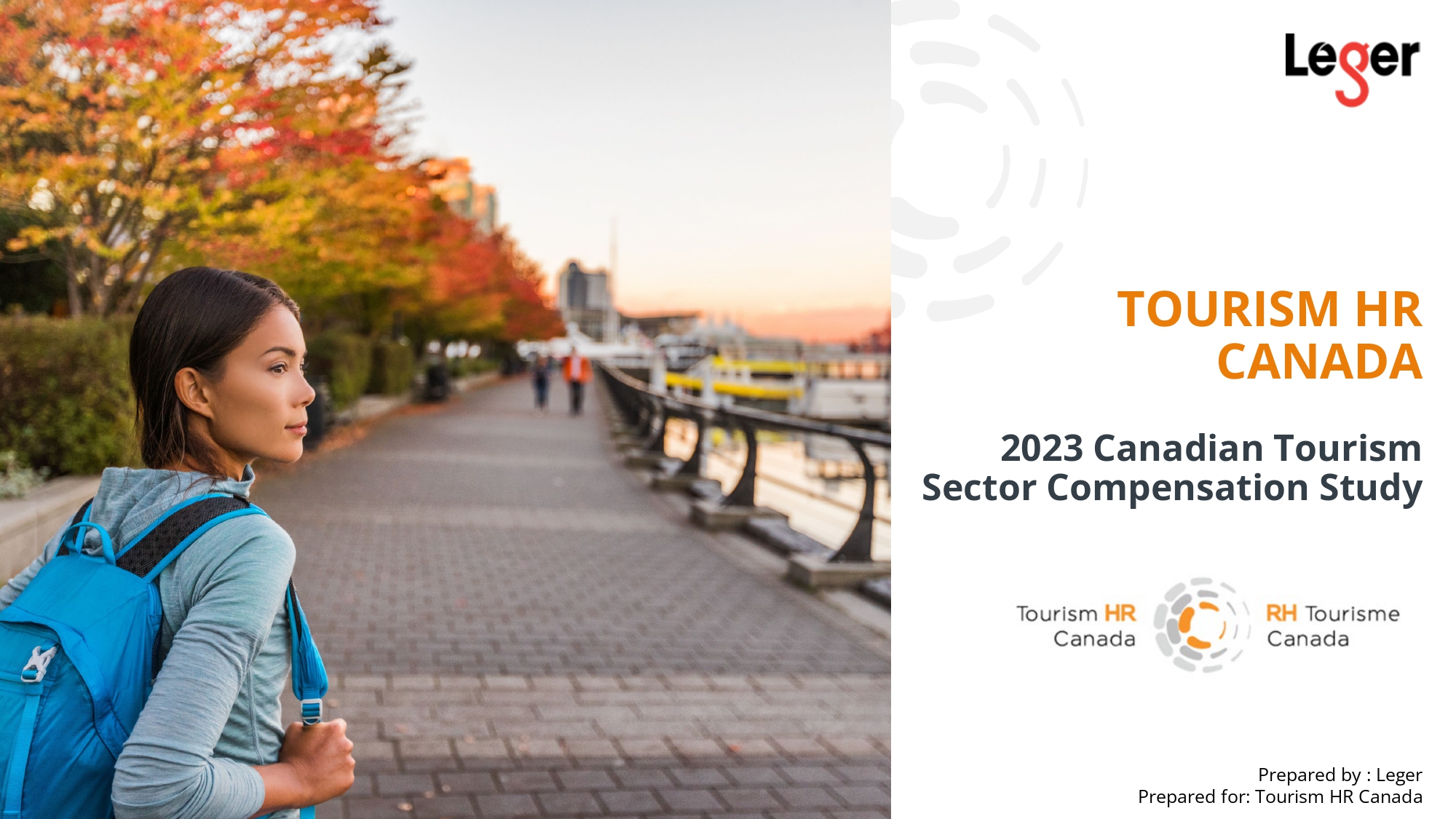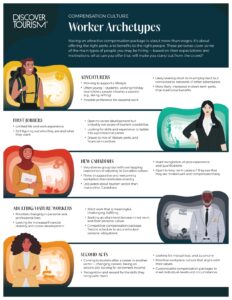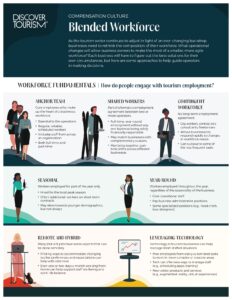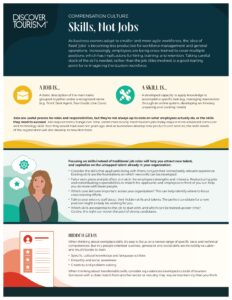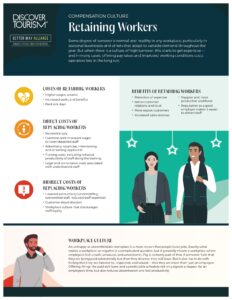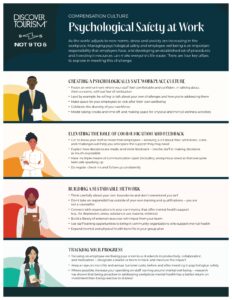If you want to attract, recruit, and retain skilled workers for peak performance in your workplace, you need to know that your total compensation package is competitive. The Canadian Tourism Sector Compensation Study provides a wealth of information on wage rates by region and industry, and some high-level observations on trends in perks and benefits.
Tourism HR Canada has been conducting compensation studies of the Canadian tourism sector for several years. A large-scale survey was conducted every two years from 2006 to 2012; it was re-launched in 2018, culminating in the comprehensive 2019 Canadian Tourism Sector Compensation report. This research was suspended during the pandemic, but given the tight labour market we are currently facing, the question of compensation is just as pressing as it has ever been.
2023 Canadian Tourism Sector Compensation Study
Our latest compensation study was conducted from late 2022 into the start of 2023. This current study is a bit smaller than the previous ones, so the level of detail is not directly comparable, and there are some methodological differences as well. The core of the study was a survey that reached over 1,400 tourism businesses across the country, and collected up-to-date information on salaries, hourly wages, and perks and benefits that operators are offering. This survey was supplemented with a series of interviews with tourism operators, in order to better understand how decisions around compensation are being made.
The 2023 Canadian Tourism Sector Compensation Study report is available here; it provides in-depth data on fifteen key occupations across the tourism sector (excluding the transportation industry group, where wages, perks and benefits are affected by different factors than what we tend to see across the sector as a whole). The report provides the following information on an occupational basis:
- hourly wages and annual salary data
- perks and benefits offered and planned to be offered
- union coverage
- information on gratuity policies
- which resources businesses use in making compensation decisions
Tourism Compensation Interactive Dashboard
The survey report is supported by an interactive dashboard, which allows users to explore the data according to their own interests and needs. Data is available for each of the 15 occupations, and can be filtered and compared by region (nationally, regionally, and to a limited extent, locally), by position type (part-time, full-time, or seasonal), and by compensation type (salaried/annual or waged/hourly). There is also information about perks and benefits.
Because there is such wide disparity across the country, and because the sample size for this study was smaller than in previous iterations, this data is best used as a general indicator of wage trends in a particular region or for a particular occupation.
It should not be used as the sole determining factor for business operators when making compensation decisions at an operational level.
Workplace Culture and Compensation: Insights from Operators
As the tourism sector continues to adjust to the shifting post-pandemic labour landscape, compensation is one of the variables that business operators are grappling with. This includes wages, but also encompasses a wider range of business practices, from perks and benefits to the kind the culture a workplace fosters. This broader sense of ‘compensation’ is an important pillar in hiring and retaining a reliable workforce, so getting it right is worth the effort.
This report explores some of the compensation-related decisions that tourism operators have made over the past three years, in response to both the pandemic and the general changes in the labour market. Some businesses were able to use the pandemic downtime to revamp and refresh their product lines, while others spent the time hunkered down in survival mode. No tourism business escaped completely untouched.
Drawing on insights from 75 tourism operators from across the country, this paper looks at some of the shared experiences that have characterized the past three years, and considers some of the ways we can change what it means to work in tourism, with an eye towards reinvigorating the sector and re-engaging with our workforce.
The road ahead is going to be rough as we continue to push through recovery and into regrowth, so now is the time to listen to operators, celebrate their successes, and learn from their challenges. The compensation cultures that we nurture in the years to come will shape our businesses, our employees, our guests, and our sector as a whole.
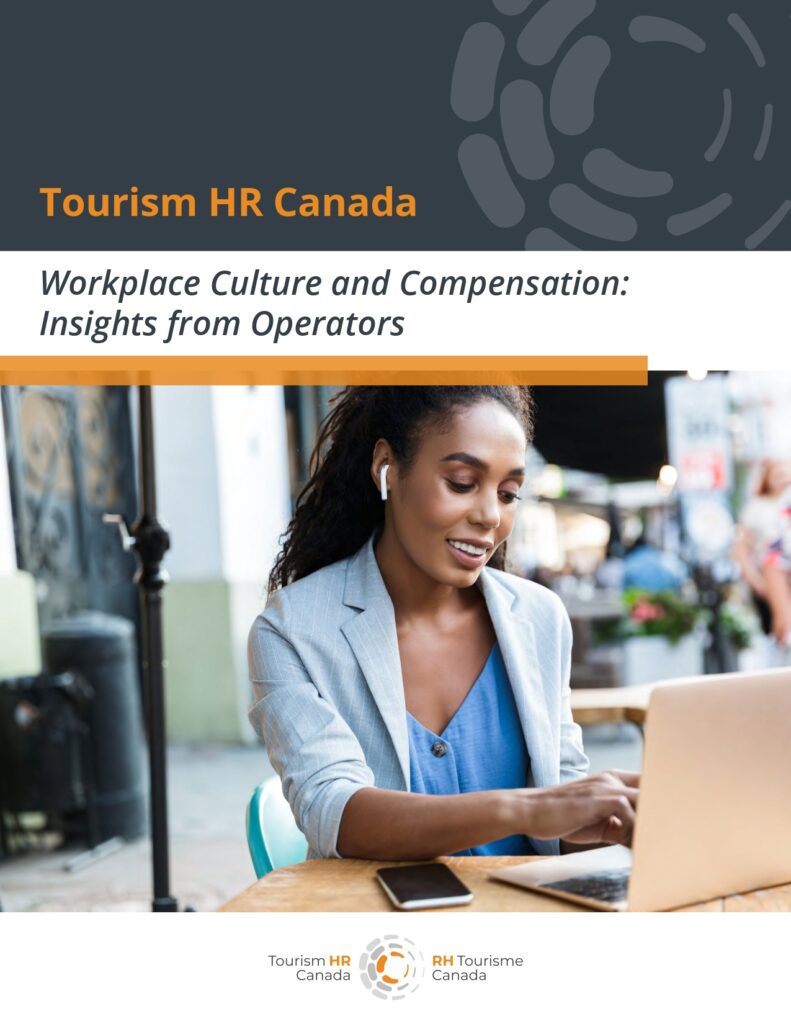
Build an Innovative Compensation Culture
Dig deeper into what an innovative compensation culture offers: explore what different worker archetypes are seeking, how to create a blended workforce, why to consider skills over jobs, how to increase retention, and how to ensure psychological safety at work.
Click below to access tips and worksheets to get started on cultivating a compensation culture that best suits your business and attracts top talent.
This project is funded by the Government of Canada
The opinions and interpretations in this publication are those of the author and do not necessarily reflect those of the Government of Canada.

